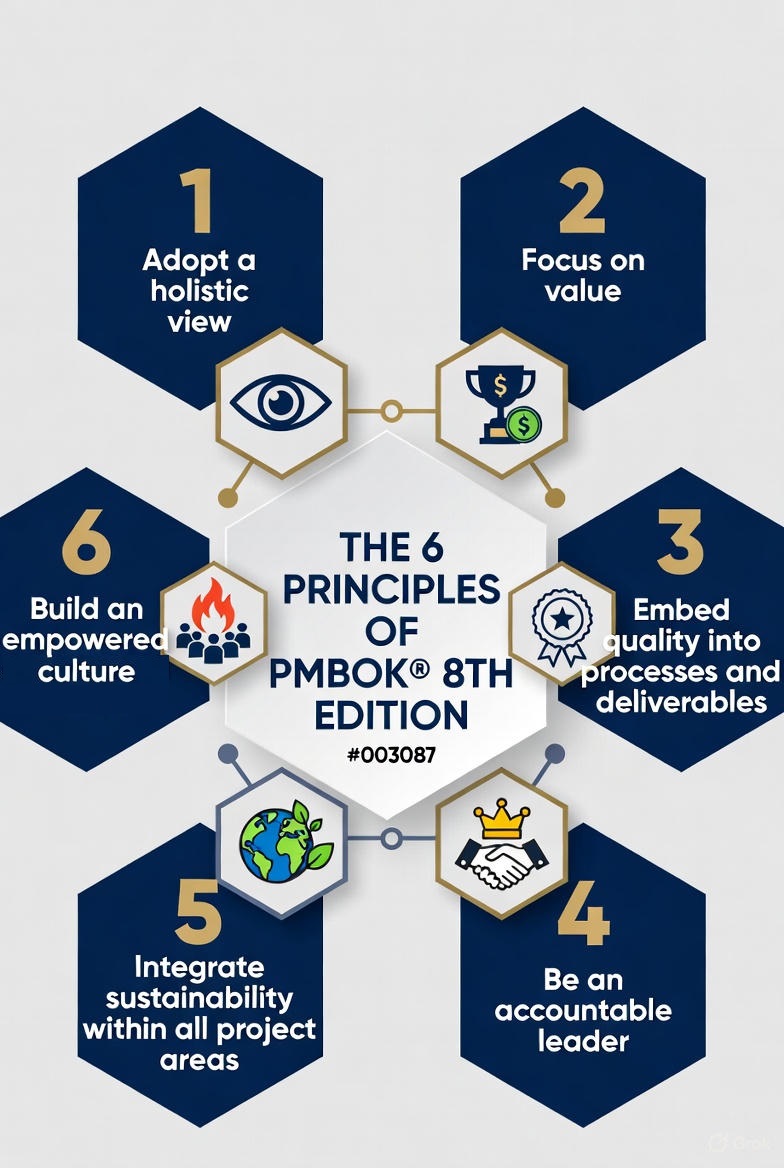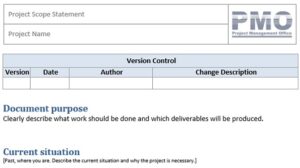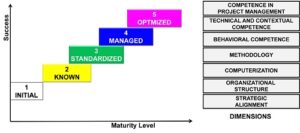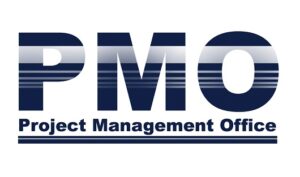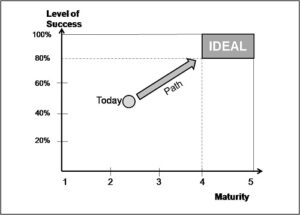The PMBOK® Guide – Eighth Edition defines a new standard for project management — one grounded in PMBOK 8 principles and performance domains rather than prescriptive processes. At its core are six guiding principles that shape how project professionals think, decide, and lead in pursuit of sustainable, value-driven outcomes.
These principles — Adopt a holistic view, Focus on value, Embed quality into processes and deliverables, Be an accountable leader, Integrate sustainability within all project areas, and Build an empowered culture — form the behavioral foundation for the seven Performance Domains that define modern project management.
This article explains each of the six PMBOK 8 principles, showing how they guide leadership, strengthen decision-making, and help teams deliver measurable value across all types of projects.
The Six PMBOK 8 Principles
According to the Table of Contents of the PMBOK® Guide – Eighth Edition, the six principles are::
- Adopt a holistic view
- Focus on value
- Embed quality into processes and deliverables
- Be an accountable leader
- Integrate sustainability within all project areas
- Build an empowered culture
Each principle represents a core belief that guides project behaviors and aligns decision-making with the organization’s strategic intent. Below we unpack each principle and give practical guidance for applying them across projects.
Adopt a Holistic View
Adopting a holistic view means seeing the project as part of a broader system — recognizing interdependencies among strategy, portfolio, operations, and external context. Practically, this requires mapping connections (value streams, supply chains, stakeholder networks) and considering second- and third-order effects of decisions.
How to apply it:
- Map interdependencies between project components and stakeholders. Use systems diagrams or value-stream maps to visualize interdependencies.
- Analyze system-wide impacts before making critical decisions.
- Include cross-functional stakeholders in shaping objectives and metrics.
- Evaluate trade-offs across domains (e.g., scope vs. sustainability vs. schedule).
- Facilitate collaboration across teams, departments, and external partners.
Result: decisions that optimize organizational performance, not just project efficiency.
Focus on Value
Projects exist to deliver value, not just outputs.
This principle ensures that every decision, milestone, and deliverable contributes directly to stakeholder and organizational goals.
“Focus on value” makes value—not activity—the primary success criterion. It compels teams to define what stakeholders consider valuable, measure outcomes, and continuously verify that delivery produces intended benefits.
How to apply it:
- Define “value” collaboratively with stakeholders at the start.
- Measure outcomes using benefit metrics, not just cost or schedule variance.
- Validate continuously whether deliverables align with strategic intent.
- Co-create value statements with stakeholders at initiation.
- Define measurable benefit metrics (financial and non-financial).
- Use short feedback loops to confirm benefits during delivery, not only after close.
Result: consistent value realization and stronger alignment between projects and organizational strategy.
Embed Quality into Processes and Deliverables
PMBOK 8 treats quality as a continuous commitment, not a final inspection.
Embedding quality means designing processes, tools, and team behaviors that prevent errors and foster excellence from the outset.
Quality becomes a property of work methods, tools, and team habits—not an isolated QA activity.
How to apply it:
- Define clear acceptance criteria tied to stakeholder value and regulatory needs and integrate them into workflows.
- Implement built-in quality controls such as peer reviews and automated testing.
- Instrument processes with in-flight quality checks (peer reviews, automated tests, validation gates).
- Capture defects and root causes as inputs for continuous improvement.
- Use lessons learned to drive process improvement throughout delivery.
Result: fewer rework cycles, improved predictability, and lasting stakeholder confidence.
Be an Accountable Leader
Leadership in PMBOK 8 is rooted in accountability — being answerable for decisions, results, and the people you lead.
An accountable leader establishes trust, transparency, and fairness while enabling others to perform.
Accountable leadership emphasizes ethical stewardship, transparency, and clear decision rights. It requires leaders to set direction, assume responsibility for outcomes, and create environments where teams can perform.
How to apply it:
- Model honesty and integrity in governance and reporting.
- Clarify decision rights and escalation paths in governance and maintain open communication.
- Take ownership of both outcomes and learning.
- Model transparency in reporting trade-offs and risks.
- Prioritize people development and psychological safety.
Result: empowered teams and stakeholders who trust the project’s direction and integrity.
Integrate Sustainability within All Project Areas
Projects shape the future — and this principle ensures they do so responsibly.
PMBOK 8 embeds sustainability across planning, procurement, execution, and closure, balancing economic, social, and environmental outcomes.
Integrating sustainability extends the success horizon beyond immediate outcomes to long-term social, environmental, and economic impacts. This principle requires that sustainability considerations be embedded across scope, procurement, risk, and benefits planning.
How to apply it:
- Assess environmental and social impacts during initiation and trade-off analysis.
- Incorporate sustainability goals into project metrics and deliverables and sustainability KPIs in benefits realization plans.
- Prioritize suppliers, solutions, and practices that reduce waste and improve resilience.
Result: projects that create lasting value while protecting future resources.
Build an Empowered Culture
An empowered culture unlocks team autonomy, accountability, and continuous improvement. It’s about enabling people with information, authority, and psychological safety so they can act in the organization’s best interest.
High-performing projects thrive in empowered cultures where people are trusted to make informed decisions.
This principle emphasizes autonomy, learning, and inclusion as drivers of innovation and ownership.
How to apply it:
- Delegate decision-making authority within defined boundaries.
- Encourage experimentation and safe-to-fail learning cycles.
- Push decisions down to the lowest appropriate level with clear guardrails.
- Invest in capability-building and coaching rather than command-and-control.
- Reward learning, experimentation, and transparent failure analysis.
- Recognize individual and team contributions regularly.
Result: motivated, resilient teams capable of adapting to changing environments.
How the Principles Support the Performance Domains
Each principle is interwoven with the seven Performance Domains of the PMBOK® Guide – Eighth Edition — Governance, Scope, Schedule, Finance, Stakeholders, Resources, and Risk.
| Principle | Connected Domains | Primary Outcome |
| Adopt a Holistic View | Governance, Risk, Resources | Systems integration and strategic alignment |
| Focus on Value | Scope, Finance, Stakeholders | Measurable benefit realization |
| Embed Quality | Scope, Schedule, Resources | Consistency and excellence |
| Be an Accountable Leader | Governance, Stakeholders, Resources | Ethical leadership and transparency |
| Integrate Sustainability | Governance, Finance, Risk | Long-term resilience and responsibility |
| Build an Empowered Culture | Stakeholders, Resources | Engagement, innovation, and adaptability |
This integration ensures that every project decision — from scope definition to financial reporting — is grounded in consistent, principle-based thinking.
Implementing the PMBOK 8 Principles
Adopting these principles requires deliberate leadership and reinforcement across governance, training, and performance measurement.
Recommended steps:
- Principle Alignment Workshop: Review all six principles during project initiation and define how they translate into project-specific behaviors.
- Governance Integration: Reflect principles in charters, RACI charts, and performance reviews.
- Behavioral Metrics: Track how principles manifest through feedback, engagement, and outcomes.
- Learning Loops: Conduct retrospectives focused on principle adherence, not just schedule or cost.
By embedding principles in governance and culture, project management evolves from process execution to purposeful leadership.
Conclusion
The six PMBOK 8 Principles redefine how modern project management delivers value.
They bridge technical performance with ethical behavior, sustainability, and human empowerment — the essential ingredients for success in a complex, uncertain world.
When teams adopt a holistic view, focus on value, embed quality, lead accountably, integrate sustainability, and build empowered cultures, they create environments where performance and purpose align.
That’s the essence of value-based project management — and the foundation of the PMBOK® Guide – Eighth Edition.
Call to Action:
References
Project Management Institute (PMI). A Guide to the Project Management Body of Knowledge (PMBOK® Guide) – Eighth Edition. Newtown Square, Pennsylvania, USA: Project Management Institute, 2025. PMBOK Guide 8: The New Era of Value-Based Project Management. Available at: https://projectmanagement.com.br/pmbok-guide-8/
Disclaimer
This article is an independent educational interpretation of the PMBOK® Guide – Eighth Edition, developed for informational purposes by ProjectManagement.com.br. It does not reproduce or redistribute proprietary PMI content. All trademarks, including PMI, PMBOK, and Project Management Institute, are the property of the Project Management Institute, Inc. For access to the complete and official content, purchase the guide from Amazon or download it for free at https://www.pmi.org/standards/pmbok if you are a PMI member.

